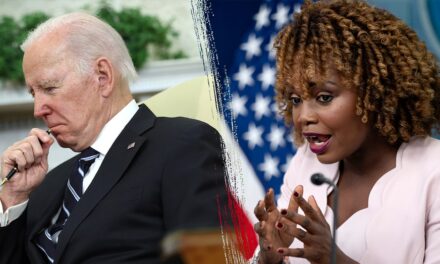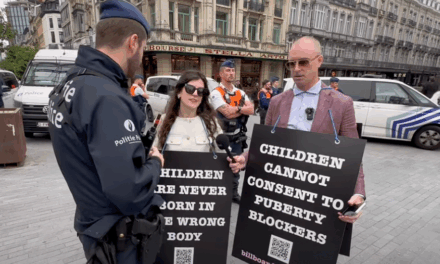In a highly anticipated event that has drawn considerable attention, leaders from National Public Radio (NPR) and the Public Broadcasting Service (PBS) are preparing for a contentious subcommittee hearing scheduled to take place in Washington, D.C. The hearing, organized by a subcommittee of the House of Representatives, would primarily focus on funding and oversight matters relating to public broadcasting, an issue that has become increasingly contentious in recent years.
The stage is set for a clash between the heads of these storied broadcasting institutions and a contingent of GOP lawmakers who have been vocal in their criticisms of public funding for media organizations. Among the topics expected to arise during the proceedings are budgetary allocations, perceived biases in reporting, and calls for increased accountability from public broadcasters.
Both NPR and PBS have long been champions of public broadcasting, often celebrated for their quality programming and commitment to public service. Nonetheless, they have come under fire from some Republican lawmakers, who argue that the funding provided by public dollars should be curtailed, especially in a media landscape that is evolving rapidly with the advent of digital technologies and shifting audience preferences.
At the heart of the debate is the foundational principle of public broadcasting: to provide access to information, education, and entertainment without the constraints of commercial pressures. Proponents assert that organizations like NPR and PBS play an essential role in fostering an informed citizenry, especially in an era plagued by misinformation and media fragmentation.
However, critics argue that public funds are being misallocated to support programming that may not align with the values or interests of all taxpayers. This assertion has fueled a growing sentiment among certain GOP members and conservative advocates, who contend that the broadcasting landscape should allow for greater competition and diversity without the infusion of taxpayer money.
During the hearing, the leaders of NPR and PBS are expected not only to defend the relevance and necessity of public broadcasting but also to respond directly to concerns raised by committee members. This may involve providing evidence of viewership statistics, funding uses, and how each organization ensures journalistic integrity amidst political pressures.
As tensions rise ahead of the hearing, various advocacy groups and media watchdog organizations are mobilizing to support NPR and PBS. These supporters argue that public broadcasting has been pivotal in delivering quality journalism and cultural programming that otherwise might not receive attention in a commercially-driven media landscape.
The pushback from public broadcasting advocates illustrates a broader societal recognition of the challenges public media faces in maintaining independence while serving the public’s interests. Many believe that eliminating funding or significantly reducing it could inflict lasting damage on these institutions and limit access to diverse viewpoints and high-quality content, particularly for underserved communities.
The GOP members attending this subcommittee hearing are likely to come armed with data points and anecdotal evidence underscoring their viewpoint. Budget cuts to federal funding for public broadcasting have been a recurring theme in various congressional sessions, and it is anticipated that they will reiterate claims that taxpayer dollars should not be utilized to support what they perceive as biased narratives proliferating through public media channels.
Among the aspects likely to be scrutinized is how public broadcasters navigate complex political landscapes in their programming choices. If the GOP lawmakers pursue lines of inquiry about perceived misalignment with conservative values in reporting, NPR and PBS may struggle to convince legislators of their objectivity. To add complexity to this equation, the macroeconomic environment, characterized by inflation concerns and public budget constraints, plays into this narrative of calling for efficiency and accountability from publicly funded entities.
Notably, NPR and PBS officials will likely emphasize their obligations of public service and the sheer size of the audience they serve, which stretches across diverse demographics. They may cite recent surveys and studies that illustrate the high regard in which audiences hold their content and the importance of their roles as trusted information sources. As they prepare for a vocal and possibly aggressive debate, their ability to resonate with both lawmakers and the general public might play a decisive role in determining the future of funding for public broadcasting.
The upcoming DOGE hearing is not merely an isolated confrontation but part of a broader trend in American politics that increasingly scrutinizes the role of government in media funding. As Congressional attention intensifies on how taxpayer dollars are allocated across various sectors, there is little doubt that the outcomes of such debates could define the fate of public broadcasters in the United States.
Regardless of the eventual conclusions reached during the hearing, stakeholders from both sides of the political spectrum recognize that this issue is emblematic of larger cultural divides regarding media consumption, trust in journalism, and the relationship between government and the production of cultural resources. The resolutions or failures reached here could resonate for years to come, influencing not just funding levels but also shaping the narrative surrounding the utility and integrity of public broadcasting.
With the future of public broadcasting hanging in the balance, the upcoming confrontation promises to be anything but tame. The stakes are high, as NPR and PBS leaders are poised to defend their institutions from growing skepticism while also attempting to reassure a polarizing political climate of their commitment to serving the public good.
As the hearing unfolds, observers from various sectors, including journalists, media students, policymakers, advocacy groups, and the general public, will be watching closely to glean insights into how the balance of power economics in public media may shift as a result of legislative discourse.
Ultimately, this hearing reflects a microcosm of the wider challenges facing traditional media in America today. It presents an opportunity to explore how public broadcasting can evolve in a rapidly changing media environment while still fulfilling its commitment to the public and maintaining journalistic integrity. The resolution of this contentious debate will be a significant story for the media industry and a critical moment in preserving the future viability of public service media in the United States.
































